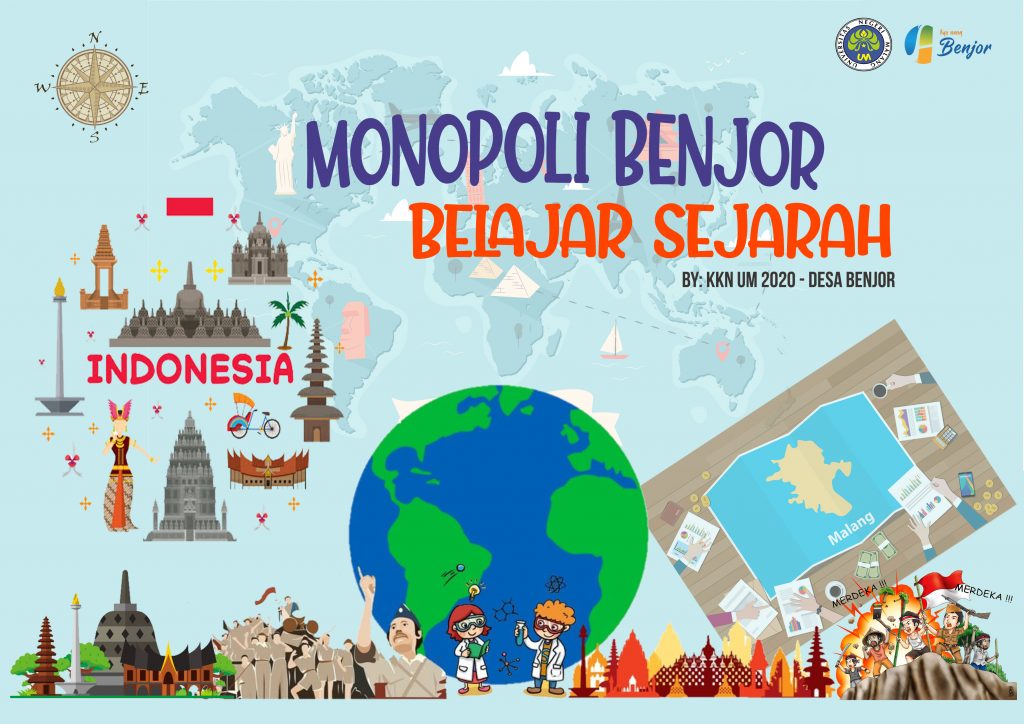Integrate Games and Technology as a Form of Learning Media
Share:



Share:

Poor. In the midst of pandemic conditions, the form of community service activities through Real Work Lectures (KKN) is still ongoing even though it is carried out online. This is reflected in the students of State University of Malang (UM) who carry out KKN in Benjor Village, Tumpang District, Malang Regency. During the online KKN process, this group of students developed technology-based learning media.
The development of this learning media is focused on grade 4 elementary school (SD) students in Benjor. Given the complex thematic learning concept for students, this UM KKN student packaged it into a monopoly game concept.
"This monopoly is common and is often played by children, so indirectly if we adopt the concept of the game and change the content for learning," said Dhita Afifa as the head of the development of this learning media.
Furthermore, Dhita revealed that this learning media focuses on learning Social Sciences (IPS) which is reflected through the learning content. "Actually, there is a variety of content in this monopoly, ranging from social studies, science, and mathematics, but we prioritize social science content, especially History. So, students do not get bored if they have to learn about History. Therefore, the name of the game is Monopoly Benjor Learning History, "he said.
As a new innovation, this UM KKN student in Benjor Village also integrates technology in this game. Rampant use Augmented Reality (AR) provides a game concept as well as a more real learning. In its implementation, the Assemblr EDU application which can be downloaded via the Google Play Store is used as a tool for scanning and playing videos.
"When playing this monopoly later, there are several information boxes that can display videos. Through the video, students can get an explanation according to the available content information, "added Dhita Afifa enthusiastically.
The existence of this learning media is expected to form a more pleasant learning atmosphere where students can be actively involved in the learning process in the classroom. It is also intended to increase students' motivation and interest in exploring.
Author: Andita Eka Wahyuni - Student of the Department of English Literature, UM